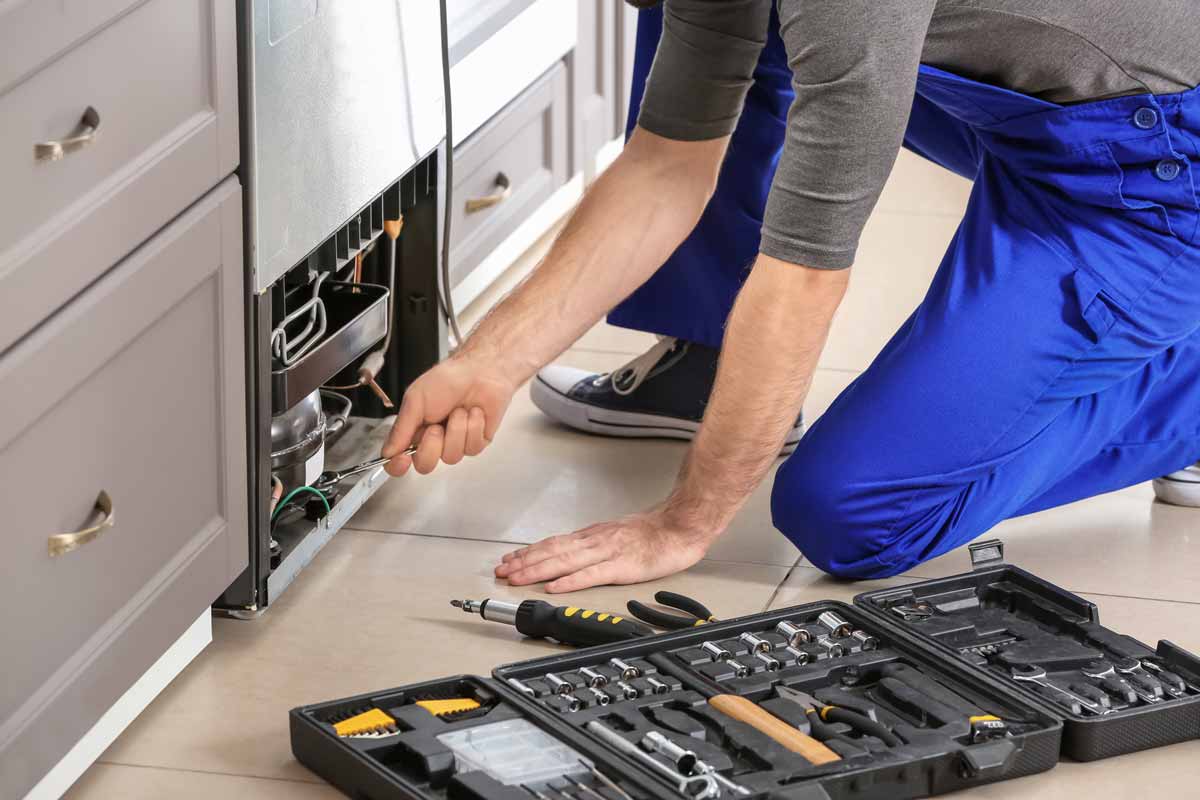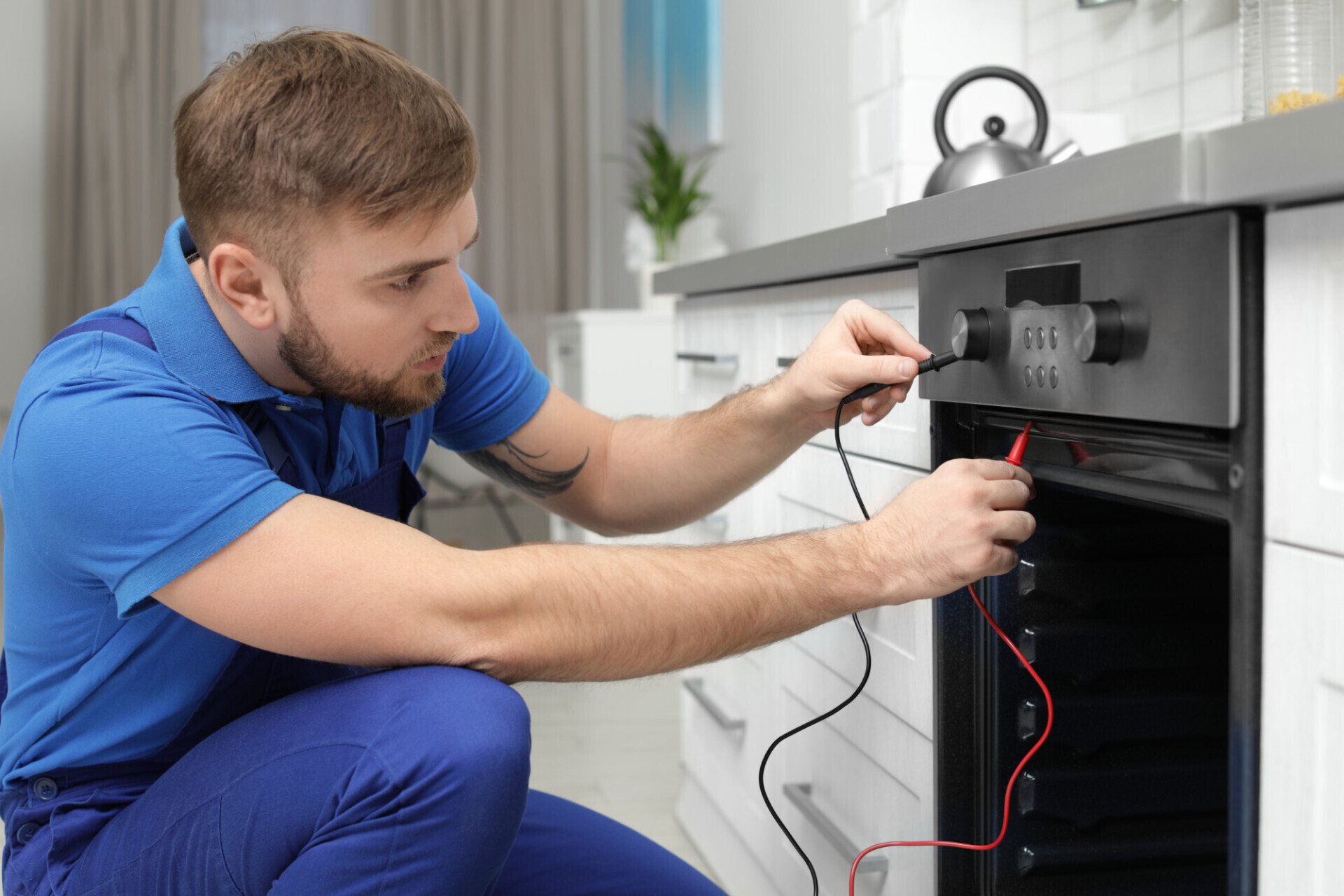Multimeter Basics for Beginners – Dependable Refrigeration & Appliance Repair Service Oro Valley AZ 85755
Multimeter Basics for Beginners – Dependable Refrigeration & Appliance Repair Service Oro Valley AZ 85755
Blog Article
The Ultimate Guide to Recognizing Appliance Repair in the house
When your refrigerator quits cooling down or your stove declines to warmth, it can really feel frustrating. Understanding home appliance fixing in the house can save you money and time. You'll learn to identify signs, make use of crucial devices, and follow a methodical troubleshooting process. Prior to you start, there are vital safety preventative measures you require to take into account. What are one of the most typical issues, and how can you repair them? Let's check out the basics.
Common Device Issues and Their Signs and symptoms
When your home appliances start breaking down, it's important to identify the indications beforehand. Neglecting them can bring about bigger concerns and pricey repair services. If your refrigerator isn't cooling properly, you might notice cozy areas or condensation developing. This might show a falling short compressor or a blocked vent.Your dishwashing machine may show issues with unclean recipes or uncommon sounds throughout cycles. If you listen to grinding or clanking, it's time to investigate.A cleaning device that will not spin or drain pipes can leave you with soggy washing, recommending a clogged drain or a malfunctioning pump.Lastly, if your oven's temperature appears off or it takes forever to preheat, you could be managing a faulty thermostat. By staying alert to these signs and symptoms, you can deal with concerns before they escalate right into major repair work.
Important Tools for Appliance Repair
When you're taking on appliance repairs in your home, having the right tools is crucial. Standard hand tools like screwdrivers and pliers will assist you disassemble and fix various home appliances, while electrical screening tools guarantee you're functioning safely with electrical wiring. Let's look at what you require to begin on your repair trip.
Fundamental Hand Tools
Having the right tools is necessary for effective home appliance repair work in your home. Begin with a reliable screwdriver collection, consisting of both flathead and Phillips types, as screws prevail in appliance setting up. Pliers are also vital; they aid with gripping, twisting, and cutting wires or tiny parts. A pair of needle-nose pliers can reach limited places quickly. You'll require a good adjustable wrench for tightening or loosening up nuts and screws. An energy blade comes in handy for puncturing product packaging or insulation. Don't neglect a durable workbench or surface to securely arrange your devices and parts. With these fundamental hand tools, you'll be well-prepared to deal with most home appliance repair services that come your way.
Electric Testing Instruments
Together with basic hand devices, electric screening devices play an important role in appliance fixing. These tools help you identify electric concerns and guarantee appliances work securely. A multimeter is essential; it gauges voltage, present, and resistance, enabling you to pinpoint issues quickly. A non-contact voltage tester is an additional must-have, letting you spot online cords without making straight contact, boosting your safety. Secure meters are excellent for determining current flow in wires without separating them, conserving you time and initiative. Furthermore, circuit testers can promptly inspect if electrical outlets are operating effectively. By utilizing these devices, you'll simplify your troubleshooting procedure and boost your repair work skills, making device maintenance a great deal less complicated.
Step-by-Step Guide to Diagnosing Appliance Issues
When your device acts up, it can be aggravating, but detecting the issue doesn't need to be frustrating. You'll learn to recognize common problems and apply effective troubleshooting strategies. Let's walk through the steps to get your appliance back in working order.
Usual Device Troubles

Repairing Techniques Discussed

Repairing Major Cooking Area Appliances: A Closer Look
Have you ever before questioned just how to take on typical concerns with your kitchen devices? Fixing major kitchen area devices like fridges, stoves, and dishwashers can be easier than you assume. Beginning by identifying the problem-- whether it's a refrigerator not cooling down or a stove that will not warm. Usually, a simple reset or inspecting the source of power can fix the issue.For fridges, clean the condenser coils and inspect the door seals. If your oven's not home heating, inspect the burner and thermostat. Dish washers could just need a clean filter or a reset to get them back at work. Always disconnect the home appliance prior to diving into repairs to ensure your safety.Don' t neglect to get in touch with the individual handbook for certain fixing pointers associated with your version. With a little bit of persistence and the right tools, you can confidently deal with device repair work and conserve cash at the same time!

Fixing Laundry Equipments: Tips and Techniques
When your laundry devices begin acting up, it can really feel overwhelming, however repairing them doesn't have to be a trouble. Begin by checking the power supply. Verify the home appliance is connected in and the electrical outlet is functioning. Next off, evaluate the door or cover button; a malfunctioning button can prevent the machine from operating.For washing machines, if it's not spinning, inspect for out of balance lots. Rearranging the clothing could fix the issue. If your clothes dryer isn't home heating, tidy the lint filter and check the air vent for blockages.Listen for uncommon sounds; they can indicate a problem. If your appliance is dripping, inspect the hoses for cracks or loosened connections. Document any kind of error codes presented on digital screens, as they can lead you in determining the issue. Ultimately, speak with the user guidebook for particular repairing ideas related to your design.
Safety And Security Preventative Measures to Take Throughout Repair works
Prior to you begin any type of appliance fixings, it's important to prioritize safety to avoid mishaps or injuries. Unplug the home appliance or transform off the circuit breaker to assure no power reaches it while you work. Use shielded tools to decrease the threat of electrical shock. Use safety goggles and gloves to protect yourself from sharp edges or debris (Dependable Refrigeration & Appliance Repair Service Washing Machine Repair).Make specific your work space is tidy and well-lit, so you can see what you're doing. Keep youngsters and animals far from the location to prevent diversions and potential risks. If you're managing gas devices, be added careful; check for leakages before proceeding.Take your time, and do not hurry through repair work. If you really feel unpredictable regarding any type of step, it's better to stop briefly and research study than to presume. Adhering to these preventative measures will help produce a much safer atmosphere for your do it yourself appliance fixing task
When to Call an Expert for Assistance
Just how do you recognize if it's time to call in a professional for device repairs? If you've tried standard troubleshooting without success, it's a clear sign. As an example, if your device still will not begin or reveals uncommon noises after resetting it, do not wait to seek expert help.When you discover leakages, smoke, or shedding smells, prioritize safety and security and call a pro quickly. These issues can result in more considerable damages or posture dangers to your home.Also, if your appliance is under warranty, calling an expert is commonly the very best path. They can ensure that repairs will not invalidate your service warranty, saving you money in the lengthy run.Finally, if you're unsure or uncomfortable with complicated repair work, it's wise to leave it to the professionals. Bear in mind, dealing with difficult problems without the best competence can result in pricey blunders. Trust fund a specialist when doubtful!
Frequently Asked Concerns
How Can I Avoid Device Troubles in the Future?
To prevent appliance issues in the future, you ought to carry out normal upkeep, look for wear and tear, tidy filters, and stay clear of overloading. Remaining proactive will certainly help prolong their life-span and maintain them running smoothly.
What Are one of the most Common Do It Yourself Home Appliance Repair Mistakes?
You may ignore security precautions, skip troubleshooting actions, or make use of inaccurate tools when trying do it yourself device repairs. Rushing the procedure or overlooking supplier guidelines can bring about more considerable issues and costly blunders. Keep person and educated!
Exactly how Do I Know if a Part Demands Substitute?
You can inform if a component requires substitute by looking for uncommon noises, leaks, or irregular efficiency. If the home appliance battles to operate properly or shows noticeable damages, it's likely time for a substitute.
Can I Use Generic Components for Home Appliance Repair Works?
Yes, you can utilize generic components for appliance repair work, but establish they're suitable - Dependable Refrigeration & Appliance Repair Service Washing Machine Repair. Common parts might conserve you money, however they can affect performance or durability, so weigh your options thoroughly before choosing
What Warranties Cover Device Repairs?
A lot of appliance warranties cover repairs for producing flaws, yet they commonly omit damage from abuse. Check your service warranty terms carefully, as some could need making use of licensed specialists and initial components for insurance coverage to stay legitimate.
Report this page